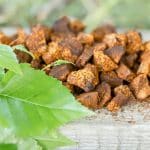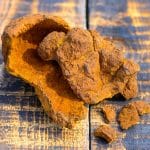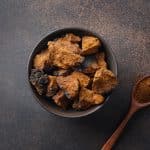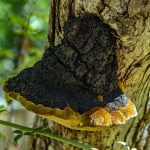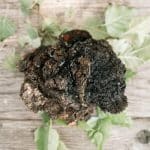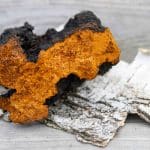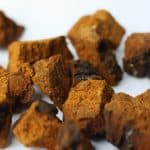A healthy immune system allows your body to fight medical conditions that are common, like the common cold, or serious conditions, like heart disease. Doctors and health experts encourage patients to live healthier lives over years in order to build up their immune system’s strength. In the past few years, these exhortations have been made with more focus on eating more organic foods in order to maintain a healthy body.
Chaga mushrooms have become a staple in the health and wellness industries as a natural, organic food that has potential health benefits. Chaga mushrooms are packed with natural vitamins and minerals which enhance both mental and physical health, taking steps towards improving overall body immunity strength and integrity.
But can chaga mushroom help with autoimmune diseases? Let’s find out.
Is Chaga Good for Autoimmune Diseases?
Chaga has been shown to be an immune system modulator, meaning that if an immune system is overactive, in the case of most autoimmune diseases, chaga could help regulate the immune system so that it’s not over-active, thus reducing symptoms of autoimmune disease.
When a body is injured, it naturally seeks to heal itself and defend against the worst effects of injury. The body’s white blood cells will rush in to help heal the issue, trying to treat the wound and keep infection from spreading to other parts of the body. When your immune system is compromised due to an autoimmune disorder, white blood cells are not able to differentiate between the body’s own naturally occurring cells and foreign, infective cells.
Learn more: Chaga mushroom for psoriasis, does it work?
This causes debilitating cases of inflammation, which affects your overall health. However, you can control the effects of inflammation using the body’s own cytokines.
Cytokines are small proteins released from various cells in the body, and these proteins communicate with other cells in the body in order to keep the immune system healthy. Chaga helps to regulate cytokine production, according to studies. The study is limited at this time to mice, but the insights indicate that chaga may help the body heal from, or recover from, an autoimmune infection.
Here are two more studies that show how Chaga may be able to help with inflammation in the body.
Inonotus obliquus attenuates histamine-induced microvascular inflammation
Since more research is needed, and most people are using medications to help treat their specific autoimmune disease, it’s always best to work closely with your doctor when considering the use of chaga mushroom. You just want to be sure that there are no adverse affects caused by using chaga, and your doctor can help you determine if that’s the case.
What is the best way to use Chaga for Autoimmune Disease?
Chaga has roots in the cold, northern climates. Chaga mushrooms are grown on a particular species of Birch Trees in places such as Northern Canada, Russia, and Scandinavian countries of Europe. The mushrooms are unevenly shaped, which you can tell from their strong resemblance to burning charcoal at the top. When ground to a fine powder, the abundant vitamins and nutrients contained in the chaga mushrooms can be added to a warm drink to make it easier to consume. The mushrooms can be manually milled at home, or you can buy chaga powder in a pre-packaged form from certified vendors.
You can find our favorite capsules, powders, and tincture’s on the following pages of our website and learn more about each individually:
Learn more: Is chaga mushroom psychedelic or hallucinogenic?
Once it arrives, you can mix the powder in warm tea or coffee, and you can start making chaga a regular part of your diet. Before making chaga a regular routine, discuss your plans first with your primary care physician. Medicinal experts think that chaga does not have significant side effects, but it may interact with any medications that you might be taking for other purposes. Your physician will be able to distinguish between the two, and will suggest the ideal dose that you can take regularly.







